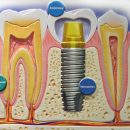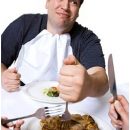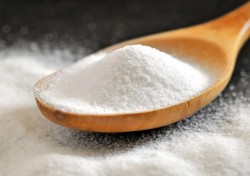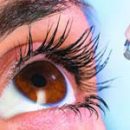Reduced cholesterol
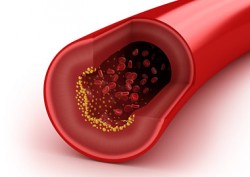
Cholesterol is fat that is formed in the liver and is actively involved in the functioning of the body. Lipids support cell membranes, preventing crystallization of hydrocarbons in them. This component is involved in the production of genital hormones: estrogen and androgen, as well as hormones produced by adrenal glands: cortisol, corticosterone, and so on. Being normal, cholesterol simply performs its important mission, but when, as a result of certain reasons, its level begins to grow (more than 7.8 mmol / l), significantly increases the risk of vascular damage, violation of the blood supply of brain, kidneys, intestines, hands and foot. These pathological processes are extremely dangerous for a person, so the normalization of cholesterol level is needed in order to begin treatment in a timely manner and eliminate the effects of unpleasant symptoms.
The most effective drugs with a hypolipidemic action are statins that reduce blood cholesterol levels. They found in the 1970s and are currently distinguished by 4 main categories of these drugs:
- Lovastatin;
- Atorvastatin;
- Fluvastatin;
- Rosavastatin.
The therapeutic effect of the application of statins is as follows:
- General level cholesterol and low-density lipoproteins in blood significantly decreases.
- The concentration of high density lipoproteins with anti-seaterosclerotic effect increases.
- The amounts of substances forming the body's fatter.
Statins for lowering cholesterol suppress the production of a certain enzyme regulating the process of compound cholesterol in liver cells. The fact is that most of this substance is produced directly in the body, and not comes with food consumed. Preparations of this category in tissue cells increase the number of low-density lipoprotein receptors, due to which these compounds are faster from plasma. Together with this, high density lipoprotein cholesterol is actively produced. They do not remain on the walls of the vessels, and therefore does not form atherosclerotic plaques.
Indications for the use of statins
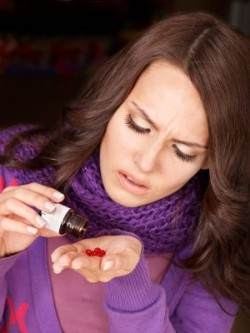
Preparations that block cholesterol production are very necessary for people with vessel problems. Statins allow 20% to reduce the risk of violations of the blood supply to the myocardium due to the damage to the coronary arteries, reduce the frequency of heart attacks and strokes. These tools are very necessary for patients who, due to improper liver work, cannot achieve the desired result by special diets and abandonment of oily food.
Despite the fact that statins are synthesized drugs, they do not contain carcinogens and toxic components. After long research, doctors were able to prove the lack of gene mutations in humans, for a long time.
In addition, the components of this category reduce cholesterol in the blood, they dilute blood, reduce the risk of thrombosis, expand and relax vessels, and also support atherosclerotic plaques in a stable state.
Side effects from the use of statins:
- Strong headache;
- nausea, vomit;
- diarrhea or constipation;
- flatulence;
- insomnia;
- Sustainacles and muscle cramps.
Mostly statins are safely transferred by the body, but their use does not pass without a trace.
Those patients who take statins regularly for several years, have the presence of such additional symptoms:
- arthritis;
- Pancreatitis;
- reducing the number of platelets;
- Mopathia.
The probability of the appearance of the above symptoms increases when parallel to the patient takes Antibiotics and other hypolypidemic drugs. The risk of severe side effects also affect such factors as:
- chronic diseases;
- irregular nutrition or diet;
- transferred operations;
- liver failure;
- alcohol abuse;
- reception of drugs in large quantities;
- Permanent consumption of grapefruit juice.
Caution should be taken by statins to women during breastfeeding period, as well as people over 50 years old, with problems in the work of liver and kidney, musculoskeletal system, suffering from diabetes and thyroid disease. It is not recommended to combine the reception of statins in food poisoning and simultaneous alcohol consumption.
Statins in Nature
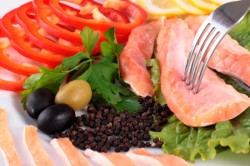
There are people who fear to take statins due to the individual characteristics of the body and contraindications. In this case, there are natural sources of substances with specific activity. Such components are contained in food. In particular:
- ascorbic acid, good sources of which are rosehip, pepper, sea buckthorn, black currant, citrus and cabbage;
- Vitamins RRI B3 of meat, nuts, cereals and red fish;
- Omega-3 fatty acids, which are much in vegetable oils and fatty fish;
- Nutritional supplements with monacolin;
- polycoosanol capsules;
- Pectines and other food fibers;
- Red wine and grapes, which contains a useful resveratrol;
- Very useful to Kurkuma.
Also garlic and soy products also have a small effect of statins.
It's important to know
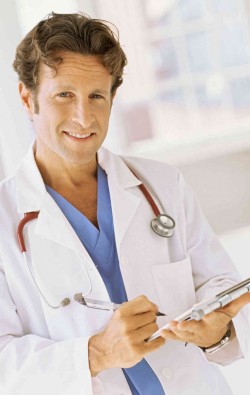
If in the results of your analyzes you saw too high cholesterol performance, then you do not need to try to eliminate the problem. The decision to appoint appropriate statins treatment should take the attending physician. After appointing these drugs, be sure to warn the doctor about the possible features of its body, for example:
- about allergies for certain substances;
- about diseases of the liver, kidneys, thyroid gland;
- that you are pregnant or breastfeed;
- Tell us about the received medicines.
It should be aware that for the elderly, a sharp decline in cholesterol is fraught with a fatal outcome.
It is important to remember the following rules for receiving statins:
- A balanced diet and a healthy lifestyle is welcomed;
- Invalid the reception of these drugs with antibiotics;
- With caution you need to prescribe statins of elderly people who take funds against hypertension, Gout or diabetes.
Take statins or not - the personal decision of each person who should be based on certain testimony and recommendations of the doctor. The choice of one or another drug is carried out by a doctor on the basis of a common clinical picture of the patient.
Self-treatment drugs that reduce cholesterol is not allowed, and with violations of lipid exchange, our site recommends contacting cardiologist. The specialist will appreciate all the risks of his patient, taking into account age, the presence of bad habits, weights and diseases of the cardiovascular system. The reception of statins should be carried out strictly on schedule and in recommended dosages.
If you manage to independently control your cholesterol and keep it in acceptable limits thanks to the correct nutrition and sports training, the statins do not need at all. Moreover, in such circumstances, they may even harm what to benefit.

